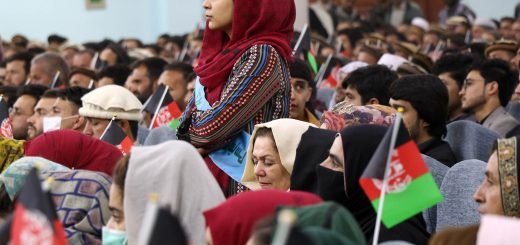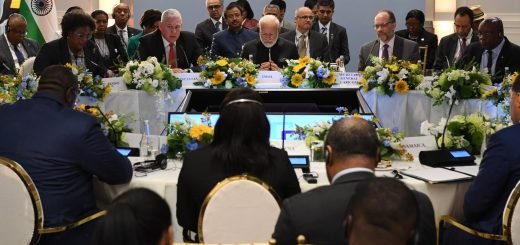Is China under-reporting Coronavirus figures?

Getting a closer look on the of the deep impact of the novel coronavirus pneumonia from inside China’s capital city
The Chinese are not only getting hard hit by the novel coronavirus pneumonia (NCP) for the early part of 2020 but its national image has taken massive blows from the international media, US government officials and the public at large. For some, the sickness has been dubbed, the “China Virus,” while many people in Western countries are reluctant to stand near anyone who looks Chinese for fear of possibly catching the bug.
A pandemic seems unlikely but a global panic against all things China has ensued. A number of factors could explain why there are growing suspicions over Beijing’s handling of the deadly virus. Wuhan, in central China’s Hubei Province, stands as ‘ground zero’ for the NCP. Local officials were receiving reports of coronavirus cases in early January and the numbers were rising until they ordered a lockdown on the city, Jan. 23.
The nation’s annual Chinese New Year’s festivities, spring festival, had started in mid-January when hundreds of millions of Chinese families from the cities migrate to rural villages to meet their relatives. Hence before the lockdown, Wuhan, a city with a population at over 11 million, similar in size to Los Angeles, 5 million residents had already departed the city.
Yet in defence of local officials when reviewing the news and health reports from around the world, you frequently read articles about other viruses that had been spreading at dangerous levels, while medical experts were speculating that the latest bug could turn into a pandemic but after a few days or weeks, the sickness died down and faded into a distant memory. The story of the boy who cried wolf comes into play here, plus deciding to enact a quarantine should never be taken lightly.
Meanwhile with Wuhan announcing a city-wide lockdown that could have sparked panic all across the country. Chinese had not imposed such stringent restrictions on cities since the SARS outbreak in 2003. At that time, over 700 people had reportedly died in the country, but it’s believed by many Chinese that the numbers were woefully under-reported.

Over a decade ago, Beijing was not fully prepared to respond to the epidemic and made some fatal errors, such as limiting public information disclosed to Chinese citizens, as well as allegedly failing to report accurate numbers of confirmed SARS cases to the World Health Organization (WHO) and the Central Government. Therefore, many had anticipated Beijing would make the same blunders all over again amid the NCP outbreak.
But alas that’s not so. Beijing has learned harsh lessons from its prior mistakes and stood fully prepared to respond to the current outbreak with prompt measures. As I live and work in China’s capital city since the beginning of the outbreak, I can attest the government has reacted in a proactive and positive manner.
Rest assured, health officials have not engaged in schemes to doctor the numbers or under-report them. The measures enforced make it very improbable for that to happen. All residents living inside apartment complexes have uniformed security guards stationed at the entrance/exit guards. Before anyone can pass the gates, they must get their body temperatures taken and show a resident’s pass card to prove they live there.
You can’t visit friends or relatives residing at other apartment complexes. Additionally, the temperature checks occur at all public places and if anyone has a high fever they get detained until an ambulance or medical staff member arrives to escort them to the nearest hospital. Each person sent to a hospital is listed as a “patient under close observation for NCP.” The statistics get input into a Central Government database in real-time that are transmitted into Big Data reports and instantaneously disclosed to the public, via Apps, Chinese language Social Media sites, media outlets and as public health announcements.
All Chinese with smartphones and WIFi access can sign up for Chinese-language Apps that alert them to real-time confirmed cases of the NCP and mortality figures. You can click one to coronavirus tracker maps that disclose who is the closest patient near you. My wife, Zhou Yawei, a Chinese native and living with me in Beijing, stays updated on all the latest news in China and had informed me on the afternoon of Tuesday, Feb. 11, that a person was reported to have the NCP inside out apartment building, according to the tracker map.
Although we live in Beijing, not Wuhan, the quarantine measures are strict here. You can take a Metro bus or subway to commute around the city, but all public transportation for transit to other cities remains strictly limited. But people can still drive their cars while the streets are empty and devoid of traffic jams. Many shops are still ordered closed until further notice.
Restaurants, most public venues and office buildings are closed as well. Essential workers, such as government officials, law enforcement authorities and medical staff are expected to remain on duty and work overtime. You will see grocery stores, pharmacies, medical care facilities and convenience shops open, but nearly everything else is closed, as of Feb. 12.
White-collar employees are working, while in most instances they are asked to work from home. China has amazing hi-speed WiFi connections and coverage, along with high-quality computer, laptops and mobile devices allowing them to work with the utmost efficiency. They might miss out on socializing with colleagues, but for those with irritable bosses, the quarantine comes as a blessing in disguise.
Companies are required to report cases of employees feeling unhealthy. Each morning, they must text messages to their bosses to describe the health conditions of household members. Anyone failing to disclose having symptoms of the NCP can face penalties and legal liabilities.
All medical staff, police officers, security guards and companies must report cases of people with a high fever or they could be subject to arrest. The laws in China are very strict and highly monitored. The government is taking no chances here for the sake of public health and safety. The quarantine is expected to save many lives. But we can only hope the NCP outbreak dies down as soon.
Nonetheless, a number of foreign media outlets had spread false and odd information. The Wall Street Journal last week published an article with the headline, “China is the Real Sick Man of Asia.” British tabloids were posting stories claiming the Chinese are frequent eaters of bats, cats, lizards, koala bears, roaches and monkeys. By making such claims they were saying this is how the NCP had started to spread.
Another false allegation was about claims that Wuhan was home base to a bio-weapons laboratory that was creating the coronavirus, but supposedly the pathogens had escaped the facility and had infected local residents in a freak occurrence. Dallas-based hedge fund manager Kyle Bass was Tweeting about this conspiracy theory. He is selling short the Chinese yuan to the US dollar and has a huge profit motive to make anti-China Tweets go viral on Social Media sites.
So don’t let the blatantly wrong information about the NCP and China fool you. The Central Government is reporting accurate numbers of confirmed cases of the coronavirus and deaths. The figures are already scary enough, there’s no need for Beijing to under-report them.


















